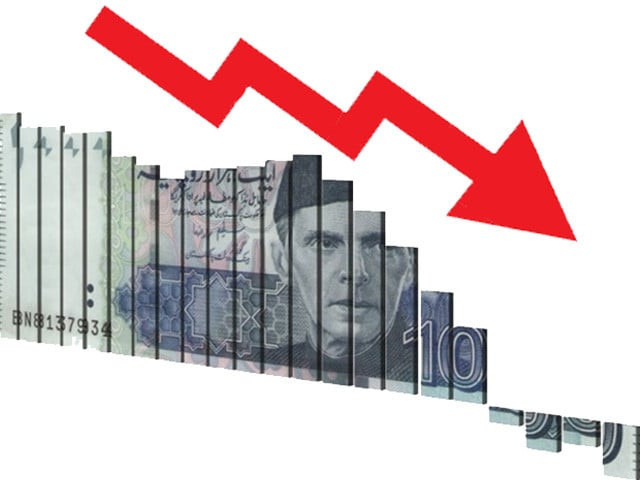The conundrum of faulty policies – I
Pakistan touts itself as a champion of privatisation but it has not benefited the country

Pakistan has been a victim of wrong policy choices. Following the death of the country’s founding father, the elite began manipulating policies in their favour.
However, after the assassination of Liaquat Ali Khan, this process accelerated, and the bureaucracy took control of the entire system.
Bureaucrats elevated themselves from being mere state employees to become the rulers of Pakistan. They formed close alliances with the elite, landlords, and business community to govern the country.
This alliance allowed the bureaucracy to manipulate policies to benefit the elite, landlords, and business community, resulting in economic disparities and further entrenching the control of the bureaucracy and the elite.
The deviation from the vision of Muhammad Ali Jinnah, the father of the nation, is regrettable. Jinnah was never in favour of a liberal economic system. He categorically rejected Western liberal economics, believing it to be incapable of fostering a prosperous society and a major cause of problems, including wars.
During the inauguration of the State Bank of Pakistan (SBP), he emphasised the need for an indigenous economic model based on the principles of Islam. He even assigned a team to develop ideas and suggestions for creating such a model.
Unfortunately, contrary to Jinnah’s vision, Pakistan embraced the Western liberal economic system, which laid the foundation for economic disparities, environmental degradation, and class divisions.
The so-called “decade of development” in the 1960s brought its own set of challenges. The industrial and agricultural growth celebrated as a miracle led to wealth concentration in the hands of a few.
While the Green Revolution improved production, it also resulted in land degradation, environmental problems, and disadvantages for small farmers who couldn’t afford new technologies and chemical inputs (for more detail, read Dr Perviaz Amjad’s paper).
Zulfikar Ali Bhutto attempted to rectify the wrong policy choices but ended up making another mistake. He introduced nationalisation of businesses and industries under the guise of socialism. However, he failed to understand the fundamental difference between state-owned enterprises (SOEs) and the role of the private sector.
According to economic rationale, a successful economy and a strong country require a balance between SOEs and the private sector. Bhutto’s approach discouraged private sector development, and many nationalised businesses and industries were handed over to political loyalists and friends who lacked the necessary skills to run them, leading to their destruction.
The third wrong policy choice was blindly following privatisation. After signing the Structural Adjustment Programme (SAP), Pakistan succumbed to pressure from international financial institutions and started privatising productive assets.
Since 1991, Pakistan has touted itself as a champion of privatisation, regardless of which party is in power. However, privatisation has not benefited the country, instead, it has triggered multiple challenges. Unfortunately, Pakistan has failed to learn from these experiences and continues to blindly pursue privatisation.
Currently, it is offering to privatise entities like Steel Mills and Pakistan International Airlines (PIA), which is a fundamentally flawed policy. It is akin to cutting off one’s own hands and feet.
Pakistan needs to understand that state-owned enterprises are essential for generating non-tax revenue. Relying solely on tax revenue is insufficient to run the country without accumulating debt.
This strategy is bound to fail, as increasing loans eventually lead to the subjugation of the state to lenders. The current economic and debt crisis is a clear indication of this wrong policy.
Many countries such as Argentina, Mexico (which is now reversing the process and reclaiming privatised companies), and Brazil provide valuable lessons that Pakistan should consider.
The fourth wrong policy choice is the Power Policy of 1994, which has severely impacted the economic and social structure of the country. This policy is not only responsible for the problems in the energy sector but has also affected the industry, economy, and social fabric of Pakistan.
The policy promoted fossil fuel-based electricity production, leading to an increased import bill and a burden on national financial resources.
Moreover, Pakistan neglected the construction of hydropower projects and dams, which hindered storage capacity and agricultural, domestic, and industrial demand. This policy has turned Pakistan into a net food-importing country and resulted in escalating electricity prices, adversely affecting households, industry, agriculture, business, and society at large.
Furthermore, the incentives provided in the power policy are heavily biased towards investors at the expense of national interests, and the weak checks and balances have contributed to the circular debt problem, choking the entire economic system.
THE WRITER IS A POLITICAL ECONOMIST AND A VISITING RESEARCH FELLOW AT HEBEI UNIVERSITY, CHINA
Published in The Express Tribune, July 3rd, 2023.
Like Business on Facebook, follow @TribuneBiz on Twitter to stay informed and join in the conversation.


















COMMENTS
Comments are moderated and generally will be posted if they are on-topic and not abusive.
For more information, please see our Comments FAQ